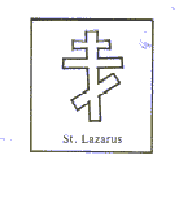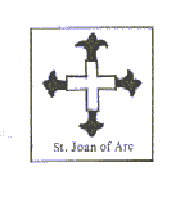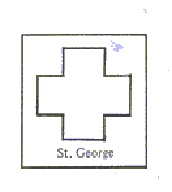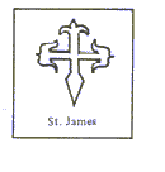

In this amazing moment of historical resurgence, sensitive people are searching once again for the holy life. Rarely does one come upon such a precise description of holy living as that captured in the following nine tableaux from the pen of Louis Lavelle of France in his little work Four Saints: The Meaning of Holiness.
St. Peter
There are saints among us. But we often fail to recognize them. It is hard to believe they can inhabit this world of ours. They all seem to have left it behind. We invoke them as though they were all in heaven and able to bestow on US only invisible and supernatural favours. It would seem to be presumption on our part to seek to imitate them. Our Christian name serves rarely to remind us of the protection the saints are able to afford, now that they have become ministers of God and dispensers of His gifts. Y et it is their death that has made them saints; for it was death that brought about the spiritual transformation without which they would be mere men like ourselves. They are now so purified as to seem mere symbols of the virtue which marked their life and which is active in us by force of an example we can never hope to equal. It seems ridiculous that someone whom we have seen and touched, whose weaknesses, foibles and faults we have observed, whose life has been involved in our life and whose brow was adorned by no halo, should have trod the path of holiness before our eyes without our having any inkling of it. But holiness is invisible alike on earth and in heaven; and it is far more difficult to identify under the appearances of flesh and blood than in its conceptual form as an image or an idea.
Yet a saint is not pure spirit. He may not be mistaken for an angel: even death cannot make him one. For holiness belongs primarily to this world. It bears witness that the life we live on earth, a bodily life with all its weakness and pettiness, is yet capable of receiving the rays of supernatural light and of taking on a new and transcendent meaning. This teaches us not merely to endure life, but to desire and even to live it. We are apt to think of a saint as an exceptional being, who has decided to live apart from everyday life, and no longer shares its wretchednessin fact as one who lives in communion with God and out of communion with us. But this is not true. Precisely because he lives in communion with God, the saint is the man who is in communion with us, while all other men live to some extent apart.
No outward sign marks off the saint from any passerby ·ho fails to attract our notice. To all appearance he lives the life of Everyman. We see him intent on his allotted task and never seeming to be diverted from it. He never refuses any work that he is invited to undertake: each successive event is an opportunity to be used. He is interested in each and all of us so spontaneously and naturally, that he seems simplyto enlarge the society to which we belong. We do not find, as we should have expected, that he has renounced his human nature or overcome and eradicated his faults of character. He can still be angry and violent, and a prey to passion. He does not seek, as so many do, to disguise those passions. But to see him give way to passion is for us something of a scandal which prevents our thinking of him as a saint and often inclines us to set ourselves above him. One may say indeed that he mortifies his passions, but they remain a condition and even an element of his holiness. For holiness is itself a passion; or if the phrase offends us, let us call it a sublimated passion. There is in passion a power which holiness needs in order to break away from prejudice and habit. Passion always has its roots in the body; it is passion which stimulates and raises the body to higher levels of living. There is nothing finer than to see the fire which feeds on the most base materials produce at its highest point a flame radiating so great a light.

In every one of our neighbours there is a potential saint. He may not necessarily become one, for there is also in him a potential criminal or even a potential devil. And the agony of mind which is a characteristic of our time (the majority of the moderns seek to identify it with consciousness itself) is a token of our uncertainty as to which of these potentialities will in the long run prevail. The Jansenists knew such agony of mind. But on the whole men are content with a mediocre existence, with a round of merely commonplace tasks and temporal interests. The mark of the saint is that he always lives at the limit of his powers. There is no one whose life is so close to the spontaneous movements of nature. He seems in a way to surrender to them, to find in them the source and spring of all his action. We may indeed think that he fights against these natural impulses; but it would be more true to say that he directs them all to their foal end, to the point at which they bring him perfect satisfaction and fulfillment. In the process he is obliged to transcend the limits of nature, in order that nature may achieve in him the end towards which it aspires. In like manner one sees the mathematician, using the concept of limit, press to infinity a series of terms and so transcend the concept he is using. So too the saint never brings into play and never suggests the use of any save the most familiar sentiments. No one is more accessible than he. But of these same sentiments he makes a most extraordinary use; for he manages to give them their full power only by forcing them (in order to fulfill their aspiration) to transcend the uses to which we had previously consecrated them. At the moment when they seem to approach fulfillment, they appear to give way or to be transformed into something of a wholly different order. And so in the saint we recognize all the impulses of nature, and yet in a sense we do not. It would be a mistake to think of him as always engaged in a relentless war against his natural impulses, for nature also comes from God. He transforms nature into the supernatural. He rediscovers its origin, its destiny and its full significance. It is easy to understand how one who remains caught up in the toils of nature is bound to debase and degrade the powers which nature has put at his disposal. For both the divine and the diabolical contain the same elements. A slight inflection of our freedom suffices to turn the one into the other. It is in the life of the spirit that the life of nature finds its true fulfillment. It is to misread nature not to see that nature is itself a figure. Immanence is shorn of all its value if we are content to rest in it, and if we fail to see that in transcendence it finds a fleeting and precarious approach to that of which death alone can give possession and fulfillment.
III
The mark of holiness is to lay bare to us the relation between two worlds, the material and the spiritual; or again, to show that there is in truth only one world with two faces, one luminous and one obscure. By the outward appearance of this world (in which our transient being has a share), we may allow ourselves to be deceived; or, by withdrawing the veil of appearance, we may uncover its essential reality, and reveal its truth and beauty. The saint stands at the frontier of the two worlds. In the midst of the visible world he is a witness to the invisibleto something which is present in the deep life of all of US, but which the visible world hides or reveals according to the way we look at things. It is necessary that the saints should live among us, that they should be subject, like us, to all the wretchedness of our human condition, and that they should even seem to be overwhelmed by it; for in this way they teach us to be indifferent to all the glory of the world, proving to US in a striking manner that our true good lies elsewhere. The essence of holiness often manifests itself most clearly in the frustration the saint endures, in the pain which is inflicted on him, or which he inflicts on himself, in torture or in martyrdom. In martyrdom certainly, the purity of the witness is most clearly seen. But other types of witness are of a more secret kind. Not all the saints have been called to be martyrs. Yet our imagination needs these great examples as a measure of the distance there is between holiness and success. Holiness is the supreme success in the spiritual order; it is indifferent to worldly success and indeed despises it.
But no one can choose the state of life in which he is placed nor the demands that such a state makes Oil him. Holiness may be found on the throne, where most men agree it encounters the greatest difficulties. Holiness again may be hidden beneath the rags of a beggar, where indeed one is more often inclined to look for it. But no one knows which requires the greater effort, to resist the demon of pride or the demon of envy. In truth we like to find a sharp contrast between holiness and the state of life in which it exists. Holiness appears most striking when we find it either at the summit of human greatness (\\ hen this greatness is forgotten or despised) or when it is seen in the lowest state of human wretchedness (when this wretchedness is accepted and even loved). But it is the mark of holiness to be to the natural eye as invisible as is the world of spirit into which it invites us to enter. The holiness of the beggar or the king is not easy to discover in the features of the beggar or the king; holiness for us is always linked with the wholly interior attitude of mind we assign to it and which finds a mysterious echo in our own souls. And thus our beggar and king resemble the unknown saint with whom we rub shoulders every day without any sign to mark him out for recognition.
The Saint may be a scholar, a theologian, or the founder of a Religious Order. But it is not through any of these things that he is a saint. Holiness, it is true, shines forth in all the work he does; even as in the case of king or beggar it shows itself as a way of government of the one or in the outstretched palm of the other. For the saint can be one of the ordinary run of men, who seems absorbed in the most common tasks, at once a solitary and yet accessible to all. His outward life may seem to consist in a mechanical series of habitual acts; yet now and then a familiar yet unexpected gesture on his part is enough to solve, in the most natural way in the world, a hitherto insoluble problem; or a smile, full of radiance and understanding, without in any way altering circumstances, will transform the way in which we look at them. The saint transforms life for us into a perpetual miracle which, without disturbing in any way the natural order of things, shines through that order and reveals itself to us.

IV
We must learn to recognize the saints who dive beside us and even the saint who is within us, whom we decline to assist in his struggle to be born. The least movement of love is enough to reveal the saint in us and in others, ready to appear. But we do not seem able to give continuity to this first impulse, to give it stability, and to repel the forces that impede its action, the things that form the centre of our interest and our chief point of honour. No saint is immune from such lapses; and none can be sure whether he will be able to pick himself up again, and whether he will be saved or lost. But this is none of our business. Our duty is simply to do our best to keep the saint in us alive. There are in this world only potential saints who come into actual existence by their own effort, through a series of frustrations, trials and failures. It is courage that makes the saint; and courage is no more than confidence in grace that comes from on high and is always available, though we do not always open our hearts to receive it.
The saint seems most often to be a man of strong will who never ceases to strive and to conquer. Yet we may also say that the saint is less strongwilled than most; for the will is always linked with love of self and is always out for victory and for triumph. 1N70\v in the saint the will gives way, yielding place to a far more powerful principle of action which, in return for its docility, will raise it to a higher plane: it yields place to love. It suffices that of its own motion the will puts no obstacles in the way of love. And so it happens that our steps towards holiness are always easy and natural, which proves that gracein the twofold sense we give to the wordis simply the perfection of nature.
We are apt to base our judgments on the laws that rule the world of appearances; this is evident in our immediate circle where others are known to us as they really are and not simply as they outwardly appear. How often we hear people sayor even say ourselvesin the presence of certain souls in whom there is an absence of all selfseeking, and whose bodies seem to share the quality of light and whose deeds are the expression of an everactive spiritual life: here is a saint. Not that we can ever fathom the secret life of any soul, nor foresee how it may develop. Yet certain contacts we make with others bring us a kind of revelation. In such souls we see the life of holiness in operation and are able to study its formation and its way of expression. \7le are not obliged to leave this world in which we live; for holiness illuminates it with its own radiance and adds an interior resonance without which it would be no more than a phantom floating in the void.


And yet the saint appears to live in a world apart from our world. It is as though he sees things we do not see, and as though his actions were guided by motives other than the motives that dictate our acts. Sometimes w e have the impression that he is beside us, though not with us. And we feel it is so because we see only the surface of reality while the saint penetrates its depth and its true meaning. He makes his home quite naturally on a plane of existence which we can only reach at the price of great concentration and effort. Moreover we cannot dwell for any length of tine upon this plane: we have only occasional glimpses of it. For this is a spiritual plane beyond the reach of natureand one which we rightly call supernatural. Vet the saint belongs naturally there and surprises us with his perfect ease of movement. And by a kind of paradox all the objects we see in the world around us, instead of fading away like mere illusions, now take on the weight and substance they lacked. They become symbols bearing witness to, and integrated with, the hidden values that are revealed to us by the saint, and that find a kind of outward expression in the features of the world we see.
The saint alone has the ability to transcend the dual order of matter and spirit and to combine the two in a perfect unity. And what surprises us most is that in order to achieve this unity he has no need to use the processes of reasoning. I\' o one uses reason less than the saint. The process of abstraction he ignores. He lives on one level with all the aspects of reality. The characteristic effort of our thought is laboriously to search out connections between the various aspects of things; but the saint is grounded in unity. For him there are not various forms of existence which have afterwards to be brought into harmony, but rather one single centre of energy which produces, almost without knowing it or willing it, these forms that manifest and radiate the activity at the centre. Everything the saint does seems to spring from a source which is outside the processes of intelligence and yet appears to be the most subtle operation of a most lucid and wise intelligence. Every act of his is so akin to ours and so familiar that it seems within the compass of a child. Things seem to respond to his will even before he invites their response. They seem to have no existence beyond the senseimpressions by which we become aware of them, and which scarcely differs from the sentiment they stir in our souls. In this way the difference between internal and external, between ourselves and things, is abolished. To the saint the world is not something foreign, nor is it a mystery from which the secret has to be wrung. His dwellingplace is at the heart of the world, in the life of which he always shares; while other men are aware only of its outward appearances without understanding their significance.
This is why the saint is at once the most sensitive and the most spiritual of men: the most sensitive, because nothing in the world finds him indifferent; the most vulnerable also, since it is most easy to reach his feelings and move him to action. He is always in immediate and just relation with persons and things. He is also the most spiritual of men; for every movement of his soul has its origin in an inner initiative which has deep down a rational explanation, though there is no need to formulate it. And so for him freedom and necessity are one: freedom, because he is not determined by any external cause; and necessity, because in no circumstances could he imagine himself acting otherwise.

VI
That which disconcerts us and arouses astonishment mixed with suspicion in some, and admiration touched with eve in others, is that while our lives are beset by the problems of existence, the saint lives among the solutions to these problems. ·e might rather say that his way of life supplies the solution of all the problems that existence brings. There is a4\vays an element of the relative and uncertain 131 the things that are given or offered to us. But the moment the most transient and apparently insignificant things fall under the hand of a saint they are thrown into striking relief: they are at once what they are and yet something other than they are. Far from the thought of the eternal and the absolute making their wretchedness manifest, they cause eternal and absolute values to appear before our eyes. Far from leading us away from this life towards a dreamworld which is always inaccessible, the saint introduces here and now a presence that our nature is always striving to reach; and, instead of disappointing our hope, he fulfills our aspiration. The ambition which lies at the root of metaphysical thinking. to pass beyond visible reality and attain the unseen truth which is this foundation and first principle, has no more than a speculative interest. It can only be fulfilled when it is brougl1t in to act as part of the real order. And this cannot happen save in the life of the saint who animates even his best acts with the life of the spirit.
If it is true that the saint always goes to the limits of his powers. that is something we never achieve. But what is the limit of our power, if it be not an absolute sincerity on our part, making all our actions correspond exactly with our thought and feeling, that is, with the deepest and most intimate part of our soul. But for our part we nearly always live on compromise; we are always ready to give way before the opinion of others. The world in which we live and act is a world of makebelieve. No one can say that there is any exact correspondence between what it appears to be and what it is. To us it seems that it cannot be otherwise, that outward appearances exist to conceal rather than to reveal our true selves. For us it is a mark not merely of courtesy but even of charity to tone down our feelings, to restrain our natural impulses, and to dress reality in a cloak of artifice. Which we think serves to protect ourselves and yet deceives no one. The sight of reality in its naked form, so it seems to us, would be too dazzling and too piercing to be borne. Yet the mark of the saint is precisely to fix his eyes on reality with a steady gaze and to compel us likewise to look on it. To us that seems to be beyond the power of men. For the saint the world has no dark side: even what seems darkest he brings into the ful1 light of day. For him appearance and trutl1 are indistinguishable; for truth becomes identified with appearance. To us nothing seems more surprising. The tenuous veil that separated the world of thought from the world of action has vanished. The secret thoughts of the saint take form and life before our eyes. Even his faults are not hidden from us: they are in him a testimony to his human nature. It is only the very ordinary man who conceals his faults. for neither good nor evil has any strength in him. He lacks the courage to pursue either: and by concealing the one he prevents the development of the other. But in the case of the saint the everpresent evil is converted into good; and this revives his spirit and continually spurs him on. It surprises us to find good and evil so close together; but this is because we fail to see how the one feeds on the other and transforms it.
With us ordinary folk there is always a division between what is exterior and what is interior, between truth and opinion, between what we would wish and what we are able to do. The mark of the saint is that he has achieved unity within himself. His life, we think, must be a perpetual sacrifice; because the exterior order of things holds our attention, and we suppose that the interior order must separate us from it; and also because we stand in fear of opinion, since it seems to bring truth into derision; and again because we take refuge in our weakness which, as we judge things, constitutes an insurmountable obstacle to the fulfillment of our most cherished desires. The saint knows no such fear or embarrassment. He always comn1its his whole self and is therefore never concerned about loss or gain; so. he is not conscious of making any sacrifice. How indeed could he sacrifice external things seeing that they are for him no more than interior things in an outward manifestation? How could he sacrifice opinion which is for him no other than truth in an incomplete and still obscure form? How could he sacrifice his own imperfection seeing that is conscious of an inward power that is constantly making good this same imperfection? He would tell us that by refusing to tread the path of holiness we are sacrificing goods without which these apparent goods have neither substance nor savour.

But perhaps we ought to say that in holiness the great problem is to discover the precise value we place on self. For self is the principal object of our preoccupations and since it contains them all it is the origin of an egoism in which evil finds a kind of incarnation. It is the hydra with a hundred heads all of which no man has managed to destroy. But there are many who regard the pursuit of holiness, with its concentration on the interior life and on personal salvation, as the most radical and subtle form of egoism. To escape from this egoism we are told to fix our eyes on the world, on the things we can influence, on the persons who constantly seek our help and cooperation.
It would be a great injustice to suppose that the saint is indifferent in these matters. Through his presence alone he succeeds in giving to the things or persons he meets on the way the interior quality they lacked. He does not confine their existence to his own consciousness, nor does he use them as instruments to further his own destiny. He helps them to rediscover their true spiritual home. He reveals to them the source from which he draws and from which all men may draw and which never runs dry. The saint does not offer himself as an example to others, for each of us can find within ourselves the model to which we must conform: the saint merely helps us to find that model.
No one is less preoccupied with the ego than is the saint. It is we who ceaselessly think of our ego either in order to serve it or to subdue it which is only another way of thinking about it. The mark of the saint is to banish the very thought of it. As a result it is the saint alone who is alive to all that is happening in the world. He is truly alive to himself only so far as he is alive to others and to God. In this way too he transforms our own awareness of ourselves. The ego which turns its attention on itself is bound to meet contradiction in the other ego which is now the object of its attention; and it is driven to deny its existence since this other ego postulates an interior essence which is not its own. But the saint introduces the ego to an interior mode of existence that is indivisibly one in itself and in all the things that are.
It is a matter of wonder to observe that when we empty ourselves of our ego, when we are as it were reduced to nothing, when we are completely denuded of all we have and of all u e are, at that moment the whole world enters in to fill the vacant space. And so by a kind of miracle he who enters into himself is conscious of being outside himself; while he who succeeds in going outside himself feels that he is in touch with his innermost being. The saint has no particular desires. He seeks only to be allowed to disappear. He reveals the world to us as God has willed it. He is a saint because he is a permanent witness to the Will which obliges things to reveal their significance to us, and persons to become aware of their vocation. The saint is like a beacon which God has put into the world and which shines all the more brightly the less we see of its centre.

The saint is often contrasted with the hero and the sage. The saint can be either of these though it does not always so happen. If he is a hero, he is the kind of hero who masks his heroism beneath the outward appearance of submission; and if a sage he often disguises his wisdom under the appearance of folly. Both hero and sage appear to be concerned only with nature, which will and reason seem able to subdue and rule. Our purely human resources suffice to produce heroism and wisdom, but both are far removed from holiness. They do not spring from the same source, nor do they pursue the same end. The hero does not give way to nature: he imposes his will on it, and as soon as a conflict arises he makes his will prevail even if in the effort he succumbs. The sage on the otherhand seeks an alliance with nature and makes it serve his ends. He establishes between nature and will a kind of equilibrium, which assures his inner peace and gives free play to his thought and judgment. The hero resists the course of events, even though he be broken in the process. The sage accepts this order and accommodates himself to it, giving it a spiritual significance. Both are concerned only with the values of things. The hero is always prepared to do violence to the course of events so as to force the issue; while the sage falls into line with the course of things in the hope of getting them to bear witness to the values he has at heart. The one is only concerned with conflict, and sometimes even provokes it: the other acts as a peacemaker. and seeks a harmony which he attains at times only by evading conflict. The hero ought only to engage in conflict when the ways of wisdom offer no further help and wisdom itself urges him to take this course. The sage must never decline to take the path of heroism if wisdom can be purchased only at this price. But the hero and the sage arc, as we are well aware, men who rely on themselves in their action; they are therefore always in danger of a fall. We are puzzled when we find that one may be a hero in an unworthy cause and that the sage sometimes sacrifices the better course to a risk that he thinks he ought to take. Heroism has a certain glamour, and that is why there is such a thing as false heroism. Yet heroism may on occasion be unseen and unconscious even on the part of him who plays the hero. The way of wisdom is sometimes no more than an appearance of peace: it is no more than a counterfeit wisdom unless it is the outward sign of inward peace of soul.
Heroism, it seems, is an act and wisdom a state. Acts of heroism always seem to be performed on the impulse of the moment, as if they were implicit in the course of events. Such acts are nearly always followed by a slackening of tension. Few heroes remain on the level of the act which they were once able to accomplish. It is not expected of them. In a life which needs to be continuously renewed and maintained on the level of heroism, an unbroken series of heroic acts is not possible. Wisdom on the other hand seems to belong to time in duration and not merely to the passing moment. The important thing is that it should not falter. \\'e can perform individual acts wisely, but the virtue of wisdom only becomes inscribed in our nature by slow degrees. It is an acquired virtue, and only bears full fruit during the last years of our life.
Holiness is at once an act and a state. It is a state which not merely manifests itself in acts but is in itself an everpresent act, which may occasionally fail of its purpose but is always renewed. And so while heroism belongs to the instant and wisdom to the duration of time, holiness belongs to eternitybut to eternity which is incarnate in time. For this reason holiness always acts in instants of time. It is always accessible, always ready to give and to spend itself in action; yet in its undivided unity it ills the whole of existence and cannot be reduced to one particular instant or even to the totality of all the instants of time. In an instant it opens a way into eternityinto an eternity that lasts and gives its continuum to all duration.
We need not therefore be surprised that the saint often performs actions which appear heroic. But these must not be attributed to heroism if by heroism we mean something that merely implies a fight, and victory in the fight. Instead of going against nature it is in effect through a kind of natural necessity that the saint performs such striking and difficult actions. This is because there is in him a new nature which, instead of being in opposition to the earlier order of nature, spiritualizes it and is at one with it. For all its apparent foolishness his action transcends the wisdom of the most wise. Not that the action of a saint is determined by nice calculations of prudence; but because it is beyond prudence, it finds its inspiration in a higher source, and integrates and transcends all the counsels of wisdom.
Reprinted by permission of Pantheon Books, Inc., 333 Sixth Avenue, New York 14, New York.
IX
THE SAINT LIVES
IN A PERPETUAL MIRACLE
The mark of holiness is to make us live in an atmosphere of perpetual miracle. \\'e are in that atmosphere when we are conscious of the presence and action of God in all we see and do.
In this respect there is a certain opposition between the action of the scientist and that of the saint. The whole effort of the scientist is to strip the world and life of their miraculous character; !et we know that science fails in its endeavour. For the features of the world as revealed to us by the most advanced science remain as mysterious asperhaps even more mysterious thanthe features that are displayed to our ordinary senses. Yet science seeks to strip the world of every element of miracle because it assumes that the world is selfsufficient, that it consists of a mere concurrence of things or phenomena located in space of time, and linked together by a more or less complex system of laws which are in gradual course of discovery. The spirit of the scientist is thus immanent in the things of the world.
It is none the less a great miracle that there should be a mind capable of apprehending the world as a whole and of learning the science of it. It is for this reason that mind transcends the world. Moreover it is not in this world that it finds its destiny and end. The world serves at once as a means of communication and a place of probation. It must become for the mind or soul not merely an outward show but also a means by which the soul will find its proper fulfillment. It is because the world is an obstacle that it can also be an instrument; and because it rebels against mind it can also be a witness for it. The saint constantly obliges the world to bear witness on the side of the spirit; for he is continually revealing to us the living presence of God in the world. It shines forth even in the least of his words or gestures. The world abounds in miracles, from the tiniest blade of grass to the stars in their courses; from the movement of our little finger to the mighty clash of nations. Yet there is nothing which does not become clear and luminous for one who can find in each thing a sign he is content to recognize and a call to which he is ready to respond.
If we think that the world is nothing more than it outwardly appears to be, it becomes merely a blind and monstrous mass in which we are caught up as in a vice, and which in the end will crush us out of existence. If this ere true we might well say that our very existence is absurd. Our intelligence is the judge of all these things, and is therefore outside their jurisdiction. It pertains to intelligence, if existence is within its scope and not beyond its jurisdiction, to take care that the world does not blind its vision nor resist its claims but that it shall become the field of their operation. In this way the world takes on a kind of transparent quality. It has no meaning except to enable us to measure at each moment the success or failure of our spiritual activity. It need not astonish us that for some minds the world appears to be full of light, while for others it seems to be plunged in darkness. The difference is due not so much to power of intellect as to purity and integrity of will.
It is this miracle at work which the saint continually reveals to us: a miracle in which every thing, while still retaining its own identity, suddenly displays an essence and significance which otherwise would have eluded us. The intelligence is thus restored to its proper sphere of activity. It is not true to say that the saint has turned his back on the world. On the contrary, he is the only one who has access to the deep life of the world, instead of remaining merely on the surface. Far from vanishing dike a dream, the world reveals to him the deep foundations on which it rests. For him it reflects the face of God, while for those who look on it through bodily eyes alone it means nothing. To see the world thus transfigured is the privilege of those who, instead of thinking that our natural powers suffice to interpret the world to us, suffer a change of heart which makes them attentive to the presence of God; and from Him proceeds the power to greet all things with the glance of dove.
